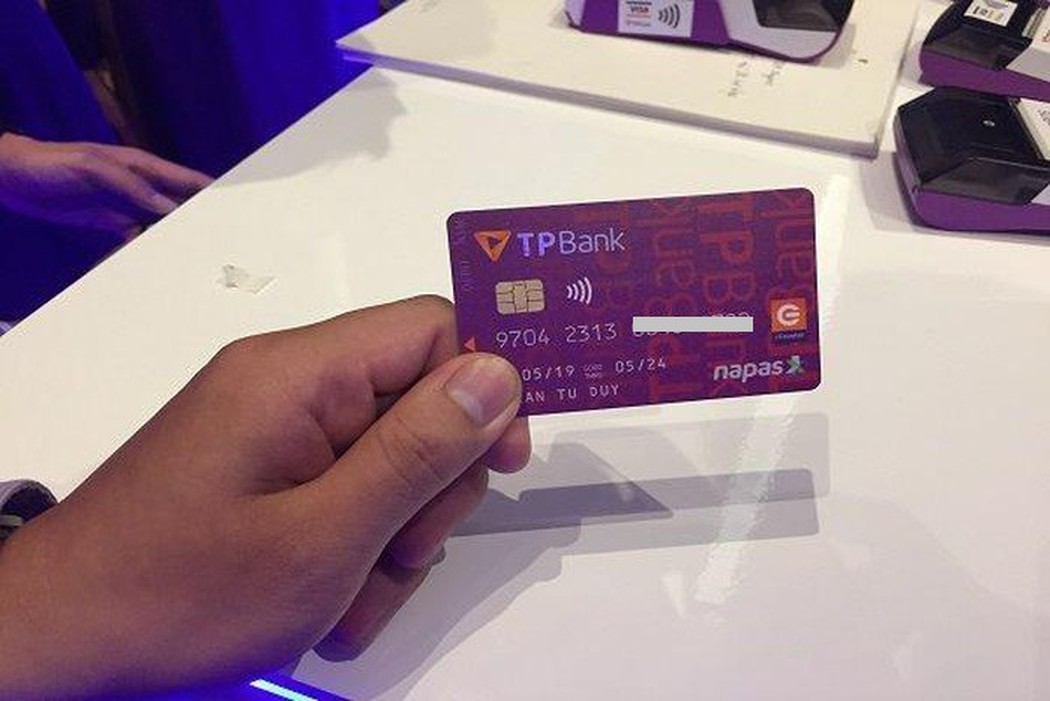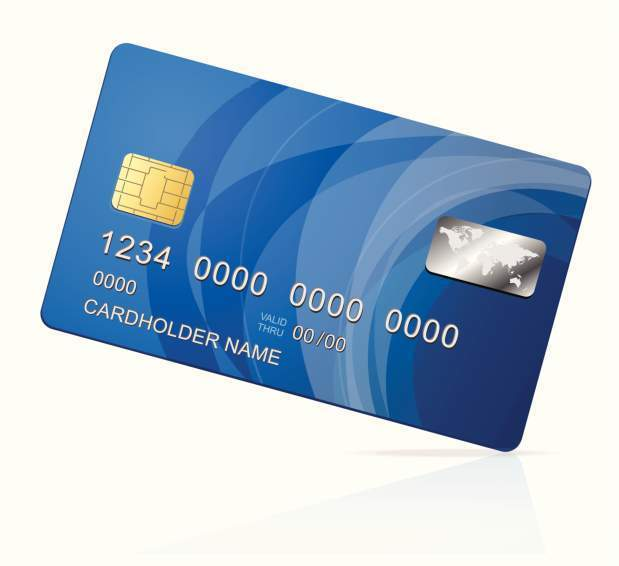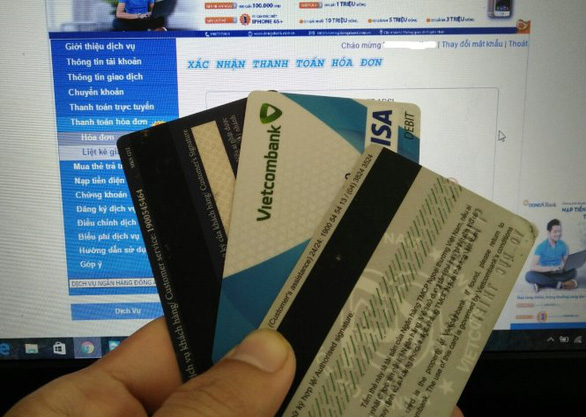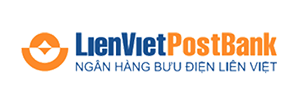
Increasing safety, high information security, minimizing the risk of fraud, stealing card information (skimming) … are the outstanding advantages that chip technology cards bring.
Recently, banks have been offering ATM cards based on domestic VCCS card standards, complying with EMV international standards as well as increasing communication to their customers about this conversion.
Why should you use ATM card chip technology?
Magnetic cards have a relatively low level of information security because the information stored on the magnetic strip on the back of the card is not encrypted. When customers insert a card into an ATM or swipe a card on a POS machine, the information stored in the magnetic strip will be read by the readers in the machine, so with just a common magnetic swipe device, an intruder can easily. easy to steal card information, then it is also easy to create fake cards with copied information, at the same time attaching sneaky devices to record the PIN operation of customers and that is enough for crooks to have Stealing money from customers’ accounts. This is a fairly common crime, often called skimming.
But with EMV standard chip cards, electronic chip-attached cards are designed to prevent skimming fraud thanks to the ability to store and encrypt information with high security.
Chip cards help minimize skimming
Accordingly, the EMV chip will generate new data every time the customer makes a transaction. When you use the EMV chip technology card at a card reader, the card will generate a unique encryption string just for that transaction. This encryption cannot be used for another transaction because it is created from a combination of information contained in the chip and information contained in the card reader. That means, you will not have to worry about the card information being copied because it is encrypted, combined with your own PIN, the risk of fraud is minimized.
A successful EMV card transaction will go through a complex two-way authentication step from the card receiving device to the payment bank, via Napas card payment gateway and the issuing bank. Only when approved by all relevant organizations, will the transaction be successful.
According to information from Napas, there are currently 7 commercial banks coordinating with Napas successfully deploying the issuance and acceptance of domestic chip card payment.
At the request of the SBV, in 2019, banks must convert at least 30% of the cards from domestic chip cards, and the deadline for a complete conversion to chip card technology is the end of 2021.
One of the major challenges for this transition is the large cost, not only of the high cost of infrastructure upgrades to meet the new standard, but also due to the higher price of chip cards. 5-7 times compared with a magnetic card, making both customers and banks hesitant to spend money to transfer. However, many banks said that they will seriously comply with the SBV’s request for the card conversion schedule.
TienPhongBank (TPBank) is the pioneer bank that has started the pilot implementation since October 2018 and officially released to all EMV ATM card customers from June 1, 2019, under the name Smart ATM Card. 24/7. Not only that, the Bank has also completed the conversion and upgrading so that all ATMs, POS, and LiveBank accept domestic chip cards.
It is expected that by the end of 2019, about 35% – 40% of TPBank’s domestic cards will use standard chip cards, and we strive to complete the conversion to chip cards for all customers in 2020.
Owning 24/7 Smart ATM card, customers can not only experience new, more secure chip cards for transactions at traditional ATMs and POSs, but also can be used at LiveBank, banking models. automatically of TPBank to look up accounts, withdraw money, deposit money, perform money transfer, deposit, online savings… at any time. In particular, all cash withdrawal transactions with TPBank domestic cards at ATMs of most banks, as well as transactions of depositing and withdrawing money at TPBank LiveBank in Vietnam are free.
Source: Vietnam Banking Association
Tin tức khác

Bank headache with the cost of moving a magnetic card to a chip card
The price of billet making chip cards is 20-30 times more expensive than the price of billet making magnetic cards. Although the cost of converting ATM cards made from magnetic cards to chip cards is huge, this is a necessary job for the benefit of cardholders. According to the representative of banks (NH) in Vietnam,
More
Giảm 50% lệ phí làm căn cước công dân có gắn chip
Theo Thông tư 112/2020/TT-BTC, lệ phí cấp căn cước công dân được giảm 50% trong thời gian 6 tháng, từ 1/2021 đến hết tháng 6/2021. Bộ Tài chính vừa ban hành Thông tư số 112/2020/TT-BTC hướng dẫn mức thu một số khoản phí, lệ phí nhằm hỗ trợ, tháo gỡ khó khăn, ứng phó dịch bệnh
More
Tích cực chuyển đổi thẻ từ sang thẻ chip
Xu thế hiện nay trên thế giới là chuyển đổi sang thẻ chip nhằm tăng cường an toàn bảo mật cho thẻ ngân hàng. Việt Nam cũng không thể nằm ngoài xu hướng này khi các ngân hàng đang có những động thái tích cực, triển khai áp dụng tiêu chuẩn thẻ chip nội địa
More
Thẻ chip mở thêm cơ hội đẩy mạnh thanh toán không dùng tiền mặt
Công ty cổ phần Thanh toán quốc gia Việt Nam (Napas) vừa chính thức phát thông tin bắt đầu chuyển đổi thẻ từ sang thẻ chip. Đây là sự nỗ lực trong chỉ đạo điều hành của NHNN Việt Nam cũng như Napas – đơn vị được giao làm đầu mối trong kế hoạch chuyển
More
Reducing international card fees will promote non-cash payments in Vietnam
According to the Vietnam Banking Association, currently, Vietnamese banks are paying for Visa and MasterCard 3-4 fees per transaction. The situation of “superposition charge” partly affects the card business of banks, hindering the process of promoting non-cash payment. According to statistics, currently Vietnamese banks are paying for Visa, MasterCard 3-4 charges per transaction. The situation
More
From today, ATM cards issued on the market must be chip cards
TTO – As of March 31st, banks are no longer issuing new domestic cards as magnetic cards to switch to chip cards. The cessation of issuing magnetic ATM cards is to comply with the provisions of Circular No. 22 on amending and supplementing a number of articles of Circular No. 19 on banking card operations.
More







